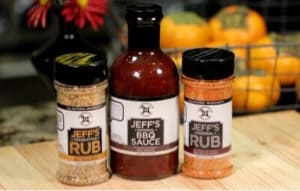160 is the magic number the FDA recommend for killing off all the nasties
What are the thoughts on getting that in the dehydrator, vs cooking it first. I have never cooked it first. Not even sure what you'd do. Just 275 in the oven for 10 mins pre marinade? Post marinade? Then dehydrator for 4ish hours at 140?
What are the thoughts on getting that in the dehydrator, vs cooking it first. I have never cooked it first. Not even sure what you'd do. Just 275 in the oven for 10 mins pre marinade? Post marinade? Then dehydrator for 4ish hours at 140?




